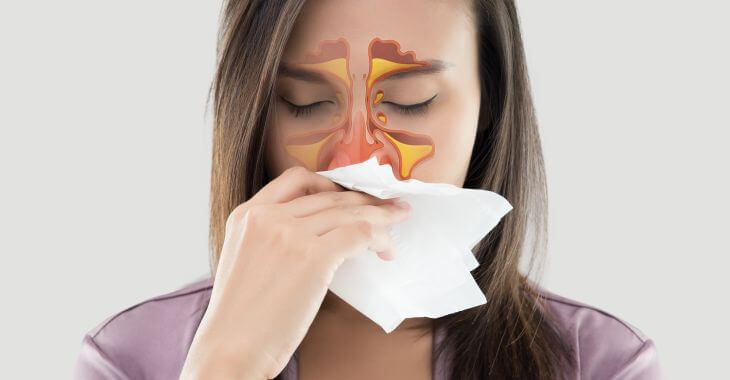How to Relieve Tooth Pain from Sinus Pressure

Tooth pain can have many causes, but sometimes it isn’t your teeth that are the problem. Sinus pressure can lead to discomfort in your upper teeth, making it difficult to determine the source of the pain. Understanding how to relieve sinus tooth pain from sinus pressure is crucial for finding relief.
How Sinus Pressure Affects Your Teeth
The sinuses are air-filled cavities located near your nose and eyes. When they become inflamed due to allergies, infections, or colds, the pressure can push against your upper teeth. This pressure mimics the sensation of a toothache, leading to what is known as sinus tooth pain.
Common Symptoms of Sinus Tooth Pain
Sinus tooth pain typically affects the upper molars and can feel like a dull, aching pain. You might also notice pain intensifies when you move your head or bend over. If you have a stuffy nose, headache, or facial pressure along with tooth pain, it’s likely related to sinus issues.
How to Relieve Sinus Tooth Pain at Home
Not all sinus tooth pain needs medical attention. There are natural and home remedies that can provide relief for sinus tooth pain. According to Healthline, there are many options to relieve sinus tooth pain at home.
- Steam Inhalation: Breathing in steam can help reduce sinus congestion and relieve pressure. Fill a bowl with hot water, lean over it, and cover your head with a towel. Inhale the steam deeply for several minutes to help clear your sinuses.
- Nasal Irrigation: Using a saline solution in a neti pot or nasal spray can flush out mucus and reduce sinus pressure. This can help alleviate the pressure on your upper teeth, providing relief from sinus tooth pain.
- Hydration: Drinking plenty of water helps thin mucus, making it easier for your sinuses to drain. Staying hydrated is a simple way to relieve sinus pressure and, in turn, reduce tooth pain associated with sinus issues.
- Warm Compress: Applying a warm compress to your face can help ease sinus pressure. Place a warm, damp cloth over your nose and forehead to relieve pain and discomfort. This can also help reduce the pain in your teeth.
- Over-the-Counter Medications: Decongestants and antihistamines can reduce sinus swelling and congestion. Taking these medications as directed can help alleviate sinus pressure and the associated tooth pain.
- Peppermint Tea: Drinking peppermint tea can soothe inflamed sinuses and reduce pressure. The menthol in peppermint helps open nasal passages and relieve sinus congestion, providing a natural way to ease sinus tooth pain.
- Eucalyptus Oil: Adding a few drops of eucalyptus oil to hot water for steam inhalation can enhance the decongestant effect. The oil’s anti-inflammatory properties can help clear your sinuses and relieve tooth pain associated with sinus pressure.
- Rest and Relaxation: Sometimes, the best remedy for sinus tooth pain is simply to rest. Ensuring you get enough sleep and relaxation helps your body fight off infections and recover more quickly, which can reduce sinus and tooth pain.
When to See a Doctor for Sinus Tooth Pain
If home remedies don’t relieve your sinus tooth pain, or if the pain persists for more than a week, it may be time to see a doctor. Persistent sinus pain could indicate a sinus infection, which may require prescription antibiotics or other treatments.
How to Prevent Sinus Tooth Pain
If you have experienced sinus tooth pain extensively, you may want to explore how to prevent this from occurring. Some options include:
- Manage Allergies: If allergies are a trigger for your sinus issues, managing them can prevent sinus tooth pain. Use antihistamines, nasal sprays, or avoid known allergens to keep your sinuses clear and reduce the likelihood of pain.
- Maintain Good Oral Hygiene: While sinus tooth pain isn’t caused by dental issues, maintaining good oral hygiene can help prevent confusion between sinus pain and tooth-related problems. Regular brushing, flossing, and dental checkups are key.
- Stay Hydrated: Keeping your body hydrated helps prevent sinus congestion. Make it a habit to drink plenty of water throughout the day, especially during cold and allergy seasons when sinus issues are more common.
- Use a Humidifier: Dry air can irritate your sinuses, leading to congestion and pain. Using a humidifier in your home, particularly in your bedroom, can keep the air moist and help prevent sinus pressure and the resulting tooth pain.
When Sinus Tooth Pain May Indicate a Dental Issue
It’s important to understand that while sinus pressure can cause tooth pain, it doesn’t mean there’s an issue with your teeth. The pain is usually due to the proximity of the sinuses to the upper teeth. Addressing the sinus problem often resolves the tooth pain.
If your sinus tooth pain is localized to one tooth or is accompanied by other symptoms like swelling, sensitivity to temperature, or persistent pain, it’s important to see your dentist. It could be a dental issue that coincidentally occurs with sinus problems.

Sinus pressure can be a surprising cause of tooth pain, but understanding how to relieve tooth pain from sinus pressure can help you find relief. From home remedies like steam inhalation to preventive measures like staying hydrated, managing sinus issues can help keep your smile pain-free.
The information provided on this website, including text, graphics, images, and other materials, is intended solely for informational purposes and should not be used as a substitute for professional medical advice, diagnosis, or treatment.




)